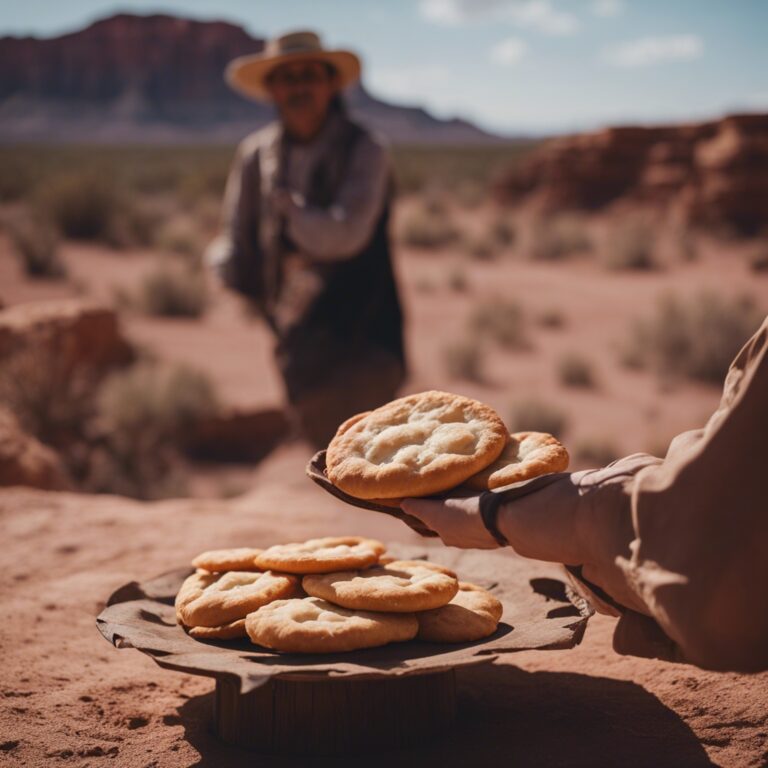Healthcare on the Go: Staying Healthy during Solo Travel
Embarking on a solo adventure can be one of the most liberating experiences of your life. The freedom to explore new terrains, immerse yourself in diverse cultures, and meet new people can be truly exhilarating. But solo travel also presents its unique set of challenges, and it’s paramount to ensure your physical and mental well-being during these journeys. Whether it’s maintaining a balanced diet, stimulating your intellect, or managing the stress of navigation, your health should never take a back seat on your travels.
“Investing in your health isn’t just about living longer; it’s also about getting more out of every moment.”
In this guide, we’ll provide a comprehensive roundup of tips and advice to help you stay healthy, active, and stress-free, wherever your solo travels may take you.
Maintaining a Balanced Diet on the Move
Traveling solo can present a unique set of challenges for maintaining a balanced diet. Fortunately, with a little pre-planning and some savvy choices, it’s completely achievable. Remember – your body needs fuel to function, especially when exploring new destinations.
Balancing this dietary aspect begins with understanding your nutritional needs. Essentially, your diet needs to pack a balance of proteins, carbohydrates, and fats. Each of these macros plays unique roles – proteins help repair body tissues, carbs provide energy, and fats support cell growth. You also need to consume sufficient vitamins and minerals for overall good health. Think of your body as a vehicle and the food and drink you consume as the fuel – better fuel means better performance!
Seek out local markets for fresh produce and groceries. This strategy will allow you to keep control of the ingredients in your meals, and it’s also a fantastic way to experience the local culture in a new, vibrant way. Not to mention, cooking your meals can be a stress-relieving exercise that aids in mental wellness.
Cook in bulk, particularly if you have access to a kitchen where you’re staying. This will not only save you time but also ensures that you have healthy meals at hand. Prepare balanced meals and then store them in the refrigerator. Your future, hungry self will thank you for the nutritious, easy-to-access food.
Lastly, practice mindful eating. Listen to your body’s needs and satiate it without overeating. This approach to food can help you maintain your weight and avoid the pitfalls of overeating or consuming junk food.

Quick and Nutritious Meal Ideas for Solo Travelers
Preparing your own meals while traveling can seem like a daunting task, but it’s made considerably easier if you have a few go-to recipes in your back pocket. By far, the most important advice here is to keep it simple. Let’s dive into a few examples:
Sandwich Wraps: Wraps are easy to make and to carry, and can be loaded with healthy ingredients like chicken, turkey, spinach, cucumbers, and a splash of low-fat dressing. They’re also highly customizable – you can mix and match ingredients based on your taste and dietary requirements. Don’t forget to cover them with some foil or carry-friendly lunchbox.
Mixed Nuts and Dried Fruits: These are not only delicious but are packed with protein, fiber, and healthy fats. Pack some portion-controlled bags for those moments when your hunger pangs strike before your next meal. You get to skip preservative-loaded store-bought snacks!
Healthy Salads: Get creative by mixing greens, veggies, fruits, lean protein, and a dollop of your favored dressing. Use heartier greens like kale or spinach that won’t wilt quickly. Carry them in sealable containers to avoid leakage.
Quinoa / Couscous Meals: Cook up a quick batch of quinoa or couscous, add some veggies and lean protein, and you’ve got a nourishing, complete meal. They’re also great as they don’t require refrigeration during short travels.
Remember, your travel diet doesn’t have to bland or complicated. These healthy and convenient food ideas can keep you well-fueled during your solo travel adventures.
Hydration: Your Secret Weapon for Staying Healthy
Staying well-hydrated is crucial when you’re traveling alone. It aids in digestion, keeps your skin radiant, and boosts your overall health. Don’t underestimate the power of water – it’s much more important than you might think. Our bodies are made up of approximately 60% water and every system in our body depends on it.
While coffee, tea, and sodas may be tempting, they can actually leave you dehydrated. Intense physical activities like hiking or walking around the city for hours can also result in fluid loss, so it’s essential to drink enough water each day. A good rule of thumb is to take in at least eight 8-ounce glasses of water daily, although your needs may increase based on your activity level and climate of the place you are visiting.
And don’t worry, you don’t need to lug around a heavy water bottle everywhere you go. A collapsible water bottle is a great investment for solo travelers – it won’t take up much space in your bag when empty, but will ensure you stay hydrated all day long.
Remember, not all hydration has to be plain water. Foods with high water content like watermelon, cucumbers, and oranges can also help keep you hydrated. And don’t forget about rehydrating after a night out enjoying local nightlife – alcohol can dehydrate you, so replenishing your fluids is crucial.
In summary, remember to keep your body well hydrated, particularly on long travel days or during physically intense activities. Listen to your body – if you’re thirsty, you’re probably already dehydrated. So, be proactive about your water intake and make hydration one of your top priorities on your solo adventure.

Physical Fitness: Keeping Active on Your Solo Journey
Traveling alone doesn’t mean you should neglect your fitness regime. In fact, it’s crucial to incorporate some form of physical activity during your solo voyage to keep your health in check. Physical fitness is not just about maintaining a desirable physique; it is a ticket to increased endurance, boosted immunity, and improved mood, all of which are essential while traveling.
You may be wondering, “How can I keep up with my regular fitness routine when I’m miles away from my local gym?” Fear not, there are plenty of ways to stay active no matter where your journey may lead.
Portable Workouts
Portable workouts are your best companions on the road. Pack resistance bands, a skipping rope, or even a yoga mat in your luggage – they take up a small amount of space and offer versatile ways to exercise. Bodyweight exercises such as push-ups, squats, and burpees can be performed almost anywhere and are great for maintaining strength and endurance.
Explore on Foot
One of the simplest ways to stay active while traversing through your destination is by exploring on foot. Instead of always taking a cab or public transportation, opt to walk or cycle. Not only does this enable you to soak in the sights and sounds around you, but you also torch calories in the process!
Outdoor Adventure
Every destination will have its unique outdoor adventures. From hiking and kayaking to surfing and mountain biking, these exciting activities can provide quite a workout while keeping your adrenaline pumping.
Remember, even while traveling, your health is of utmost importance. By integrating physical fitness into your trip, not only will you experience the destination with more vitality, you’ll also return feeling better than when you left.
Local Activities for Fitness Enthusiasts
Taking part in local activities is not only a fantastic way to learn about different cultures, but it can also be an excellent opportunity to keep fit. Here are a few suggestions:
Join Community Sports
Look for local sports leagues or pick-up games in the areas you’re visiting. This could be anything from basketball to soccer, or even water polo. These community gatherings don’t just get your heart pumping but can also provide a platform to form connections within the local community.
Try Traditional Physical Activities
Many cultures have traditional physical activities that can be an exciting workout. In Brazil, try Capoeira. In India, give Yoga a shot. In Japan, you might even try your hand at Sumo wrestling! Not only do these activities provide a great workout; they also deepen your understanding of the local culture and traditions.
Partake in Local Outdoor Events
Look for outdoor events such as walks, hikes, or marathons in the local community. These can often be found on local community websites or visitor information boards. Outdoor events offer not just a chance to keep fit but also to enjoy some beautiful sceneries along the way.
Rent a Bike and Explore
Many cities worldwide offer bike rentals which provide a cheap and eco-friendly way to explore. Bicycle tours are a fantastic way to sightsee while burning calories. Keep an eye out for designated bike paths and dedicated cycle zones for a safer ride.
In conclusion, being open to trying local activities can keep travel enriching, fun, and physically rewarding. So don’t shy away from the unfamiliar, grab your sports shoes or rent that bike, and let’s explore!
FAQ’S
Now that we’ve delved into the practicalities of maintaining your physical well-being on the go, let’s touch base on some frequently asked questions. These are queries and concerns often raised by solo travelers everywhere, ranging from managing stress and maintaining a regular diet to keeping your mind sharp during long journeys. It’s time to reduce the uncertainty and travel with confidence.
What are some effective stress management techniques for solo travelers?
Traveling alone can be a rewarding and liberating experience, but it may also spark some feelings of stress and anxiety. Incorporating effective stress management techniques into your travel routine can make all the difference. Here, we’ll explore few techniques that could help.
Mindful Meditation: Mindfulness and meditation can be one of the most effective ways to alleviate stress. Whether waiting at the airport or resting in your hotel room, take a few moments to relax, breathe deeply and focus on the present. There are numerous mindfulness apps available that provide guided meditations tailored for different needs and durations. You may find this practice not only reduces stress but can also enhance your travel experience by enhancing your awareness and appreciation of your surroundings.
Journaling: Keeping a travel journal is another wonderful way to manage stress. Writing down your experiences, thoughts, and feelings can provide a therapeutic outlet for any stresses or concerns. Plus, it’ll serve as a personalized souvenir from your travels.
Physical Activity: Exercise is a powerful stress reducer. It’s not only about maintaining your physical health but also about boosting your mood and clearing your mind. Try to incorporate some form of exercise into your daily routine while traveling, whether it’s a quick workout in the hotel room or a run through the local park.
Stay Connected: Even if you’re traveling solo, it doesn’t mean you have to be lonely. Regular check-ins with family and friends can provide an emotional boost and a sense of connection. However, remember to balance this with enjoying your alone time and fully immersing yourself in your travel experience.
Self-Care: This cannot be emphasized enough – put your needs first. Get adequate sleep, hydrate, eat healthily and take time to do what makes you happy. Maintain a balance of exploration and rest; overpacking your itinerary can lead to stress and exhaustion. Remember, this is your journey. At the end of the day, do what feels right for you.
What are some healthy snack options for long travel days?
Long travel days are often synonymous with convenience food, which, unfortunately, is usually not the healthiest option. When hunger strikes in the middle of a journey, it’s handy to have a nutritious stash within reach. Here’s a list of healthy, travel-friendly snack options that require minimal or no refrigeration:
- Whole fruits: Apples, bananas, or oranges are hearty and convenient for transport. They’re also packed with beneficial nutrients and fiber that can help keep you full.
- Nuts and seeds: Almonds, walnuts, flaxseeds, or pumpkin seeds are protein-rich choices that also offer healthy fats, keeping your energy levels steady throughout the day.
- Dried fruit and nut bars: Remember to pick bars with no added sugars to make the most of this compact, nutritious snack option.
- Whole grain crackers: Pair these with some nut butter, or a slice of low-fat cheese for a balanced snack.
- Raw vegetables: Cherry tomatoes, baby carrots, or sliced bell peppers can be enjoyed alone or with a container of hummus for added protein.
Planning out and packing your snacks guarantees you access to wholesome food that will not only meet your hunger needs but also provide the sustained energy necessary for your travel demands. Remember, the key is in portion control. Too much of even a good thing can result in unnecessary calorie intake. Happy snacking!
How can I maintain a regular sleep schedule while traveling across different time zones?
Making sure you get ample rest is crucial to maintaining your mental and physical wellbeing. Here’s some advice to help you maintain a regular sleep schedule while traveling solo.
Upon arriving in a new time zone, try to quickly adapt to the area’s local time. This may mean staying awake for a few more hours or going to bed earlier than your body might be used to. The quicker you are to embrace the local sleeping patterns, the easier it will be for you to adjust.
Secondly, consider using a sleep aid, but only as a last resort. Melatonin, for instance, is a natural hormone which can assist your body’s sleep-wake cycle to re-adjust. However, always consult with a healthcare advisor before trying a new medication, even over-the-counter ones.
Other helpful practices include avoiding caffeine or alcohol several hours before you plan to sleep, as these stimulants can interfere with your sleep patterns. Instead, opt for hydrating beverages such as water or herbal teas.
Moreover, make your sleeping environment as comfortable as possible. Travel with an eye mask or ear plugs to block out any unfamiliar light or sounds. This can help you get quality sleep and wake up feeling rested and ready to conquer the day ahead.
Lastly, consider practicing mindfulness or relaxation techniques such as deep breathing or yoga, which can help to ease your mind before bed. This method has the added benefit of reducing stress levels and promoting a sense of overall wellbeing.
What are some strategies to deal with travel-related anxiety or stress?
Dealing with travel-related anxiety or stress can often feel like an uphill battle, especially when you’re traveling solo. But rest assured, there are numerous strategies you can adopt to make your journey smoother.
Firstly, consider taking up mindfulness meditation. It’s a practice that involves focusing your mind on your present situation and accepting it without judgment. Many people find that meditation, even when practiced in short bursts, can decrease stress and improve mood considerably. You could try using a mobile app or download guided meditation audio tracks to help you get started.
Another great strategy is to maintain a standard sleep schedule. This is incredibly crucial, particularly when traveling through multiple time zones. By ensuring you get adequate rest, you can potentially avoid stress caused by exhaustion or discomfort.
Don’t underestimate the power of a good workout either! Exercise helps to release feel-good hormones that can dramatically reduce stress levels. Try to include a simple workout routine in your daily schedule – a brisk walk, a quick yoga session, or some light stretches can work wonders.
Lastly, always remember, it’s perfectly fine to take breaks when you need them. Whether you’re sightseeing, trekking, or exploring a new city, be sure to pace yourself and take time to rest and recuperate. Overexerting yourself will only elevate stress levels, which is exactly what we’re trying to avoid.
By adopting these strategies, you can manage travel-related stress effectively and ensure a more enjoyable, rewarding solo travel experience.
What are some ways to stay mentally stimulated during long travel days?
During long travel days, even the loveliest scenery can become monotonous. To keep your mind occupied and alert, a range of activities can be done. Here are some ways to stay mentally stimulated:
Audiobooks and Podcasts: A great method to keep your mind engaged is to listen to audiobooks or podcasts. They’re not only entertaining, but also great for learning new facts or diving into gripping stories. Load some onto your device before your trip and you’re set for hours.
Language Learning: Why not use travel time as a valuable opportunity to learn the local language of your destination? There are plenty of apps offering language lessons in palatable bites, allowing you to build your skills gradually.
Brain-games: Keep your cognitive skills sharp by playing brain-games. They can help to stimulate memory, attention span, and logical problem-solving. Be it a Sudoku puzzle or a game on your favorite brain-training app, they can significantly enhance cognitive stimulation.
Journaling: Reflecting on your experiences and writing them down is a great way to keep your mind active. Journaling helps foster mindfulness, maintains memory, and it can be a wonderful memory to look back on from your solo trip.
Remember: Keeping mentally stimulated during long travel days isn’t just about mental fitness — it’s about personal enrichment, too. Use this solo travel time to feed your curiosity, broaden your knowledge, or even foster personal growth.







